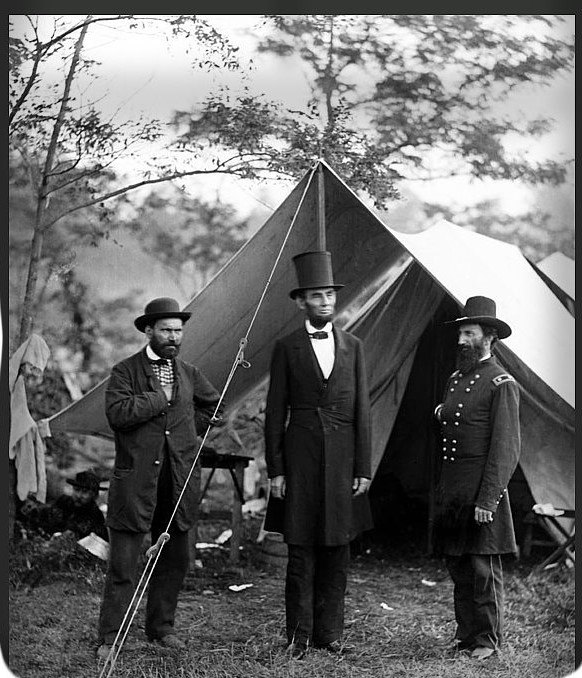On September 17, 1862, the deadliest single-day battle in American history took place in Antietam, Maryland. It was a significant moment in the Civil War, as the Union forces, led by General McClellan, emerged victorious against the Confederate Army. This victory would bring President Abraham Lincoln to Antietam just a few days later, and it would ultimately lead to the Emancipation Proclamation.
The Battle of Antietam was important for several reasons. First, it halted the Confederate Army’s advance into the North, giving the Union army a much-needed victory after a string of defeats. Second, it boosted the morale of Union troops and civilians alike, who were desperate for a sign that the tide of the war was turning in their favor. Finally, it set the stage for Lincoln’s Emancipation Proclamation, which declared all enslaved people in rebel states to be free.
Lincoln arrived in Antietam on October 3, 1862, just over two weeks after the battle had taken place. He rode through the battlefield with his top brass, including General McClellan, who had been criticized for his cautious approach to the war effort. Despite the victory, Lincoln was reportedly disappointed in McClellan’s leadership, particularly his failure to pursue the retreating Confederate Army.
In a letter to McClellan a few days after the visit, Lincoln wrote, “You remember, I am sure, that when we parted at the Capital I expressed a strong desire that you should cross the Potomac below instead of above the Shenandoah and going no further, cross over the river at Shepherdstown or Berlin.” This comment highlights Lincoln’s frustration with McClellan’s indecisiveness and reluctance to take risks on the battlefield.
However, despite his misgivings about McClellan, Lincoln recognized that the Union’s victory at Antietam was a turning point in the Civil War. Propelled by this momentum, he began to consider more radical measures to end the conflict and abolish slavery.
On September 22, just five days after the battle, Lincoln issued the preliminary Emancipation Proclamation. This document declared that if the Confederate states did not lay down their arms and rejoin the Union by January 1, 1863, all enslaved people within those states would be declared free. This was a bold move, as it made the abolition of slavery an explicit goal of the Union’s war effort.
Lincoln’s visit to Antietam cemented his commitment to ending slavery and preserving the Union. Despite his reservations about McClellan’s leadership, he recognized that the Union’s victory at Antietam was a critical step towards achieving these goals.
In the months that followed, Lincoln would continue to press for the emancipation of enslaved people, even in the face of opposition from some members of his own party. On January 1, 1863, he issued the final Emancipation Proclamation, sparking celebration among abolitionists and enslaved people alike.
Abraham Lincoln’s visit to Antietam in the fall of 1862 was a pivotal moment in the Civil War. The Union’s victory at Antietam halted the Confederate Army’s advance into the North and gave Lincoln the momentum he needed to issue the Emancipation Proclamation. While he had reservations about General McClellan’s leadership, Lincoln recognized the importance of the victory and used it to push for more radical measures to end the conflict and abolish slavery. Today, Antietam National Battlefield stands as a reminder of this critical moment in American history, and the sacrifices made by soldiers on both sides in pursuit of their ideals.
